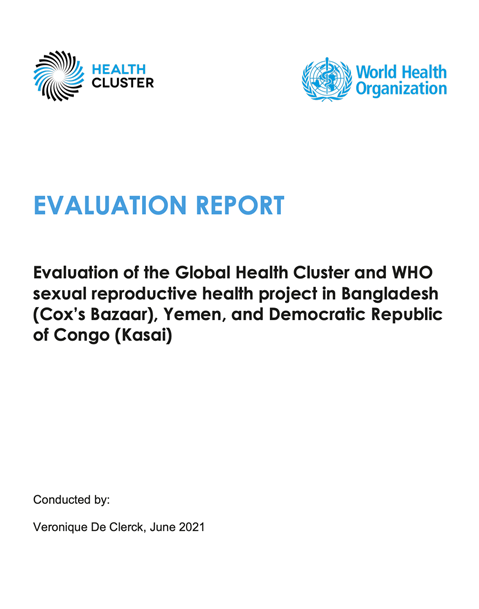Evaluation of the Global Health Cluster and WHO sexual reproductive health project
Bangladesh (Cox’s Bazaar), Yemen, and Democratic Republic of Congo (Kasai)

Overview
The WHO Emergencies Programme and Global Health Cluster established a strategic partnership with the Government of the Netherlands through the Ministry for Foreign Trade and Development Cooperation since January 2018 to implement the pilot project “Delivering integrated Sexual Reproductive Health Rights Services in emergencies through the Health Cluster”. The original duration of the SRH project was from January 2018 to December 2019 with additional two no-cost extensions including 6 months from January to June 2020, and a second no-cost extension of 12 months from July 2020 till June 2021.
This project was implemented in three targeted humanitarian settings experiencing Level-3 humanitarian crises, as designated by the Inter-Agency Standing Committee (IASC) – Bangladesh (Cox’s Bazar), the Democratic Republic of the Congo (DRC/ Kasai Region) and Yemen (Ibb, Dhamar and Aden). In each country, available evidence indicated substantial burden and critical service gaps in acute sexual and reproductive health needs.
These needs were identified through systematic and robust reproductive health assessments and reports, including the annual Humanitarian Needs Overviews (HNO). Important gaps included Comprehensive Abortion Care (SAC), HIV prevention and attention to gender- based violence (GBV). Humanitarian contexts also present an opportunity for reaching more women, young people and those who have been hardest to reach, with limited access to quality SRH services.
